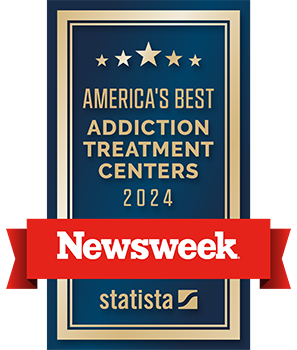Medication Assisted Treatment is a therapy approach that has shown to help increase rates of retention in addiction treatment, decrease the use of illicit opiates, improve a patient’s work productivity, social responsibility, and even reduce birth complications among women with a substance use disorder.
Opioid Use Disorder (OUD)
Opioids are a class of drugs that can be highly addictive if misused or abused. They include illegal drugs like heroin or prescription medications such as morphine, codeine, hydrocodone, oxymorphone, fentanyl, and oxycodone.
The use of opioids can be dangerous, especially since the euphoric effects of the substances can prompt people to misuse them. The substances are highly-addictive because they alter the brain’s chemistry leading to tolerance and dependence.
Opioid addiction is a long-lasting disorder that can wreak havoc on a person’s health, finances, and social life. The person using the drugs may struggle with an overwhelming urge or cravings for more of the substance.
Opiate addiction is an increasingly pressing issue demanding immediate intervention. Different communities across the country are struggling to curb the opioid epidemic.
- According to a study by researchers affiliated with the Centers for Disease Control and Prevention (CDC), there’s a fatal opioid overdose every 20 minutes.
- Approximately 2 million people in the U.S. were diagnosed with an opioid use disorder in 2018.
- The number of young adults using heroin has increased twofold in the last decade.
- Around 9 in every 10 people who abuse heroin also use another drug.
All of these figures translate to an opioid crisis in the United States and a need for an effective evidence-based treatment approach. MAT has been proven to help with detoxification, reducing overdoses, and managing withdrawal symptoms.
Alcohol Addiction
Although alcohol consumption is often seen as a harmless social activity, it can quickly become problematic—especially when it’s used for self-medication as a coping mechanism for mental health issues. Users easily build a tolerance to alcohol, which results in a need for more of the substance to achieve the same pleasurable feelings.
Just like opioids, alcohol creates functional and structural changes in the brain that lead to a loss of self-control and consequently addiction. Any attempts to reduce or put a stop to the harmful habit may result in intense withdrawal symptoms.
Data from the National Institute on Alcohol Abuse and Alcoholism (NIAAA) estimates that over 85% of American adults have tried alcohol at one point in their lives. Out of this demographic, 14.1 million suffer from an Alcohol Use Disorder. Such is the prevalence of alcoholism in the U.S. that it’s the third leading preventable cause of death, killing around 95,000 people annually.
Medication Assisted Treatment can help reduce the cravings for alcohol while easing the intense withdrawal symptoms to help patients lead a life free from alcoholism. This treatment approach is also effective at reducing the risk of relapse.










